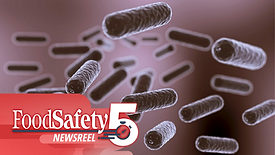Home » listeria
Articles Tagged with ''listeria''
It's Time to Reformulate Deli Meats to Reduce the Risk of Listeria monocytogenes
Multiple measures are needed to reduce the risk of listeriosis associated with RTE foods
December 17, 2024
Sponsored Content
eBook | Environmental Monitoring Excellence: Ensuring Food Safety Around the Clock
December 9, 2024
Never miss the latest news and trends driving the food safety industry
eNewsletter | Website | eMagazine
JOIN TODAY!Copyright ©2025. All Rights Reserved BNP Media.
Design, CMS, Hosting & Web Development :: ePublishing











